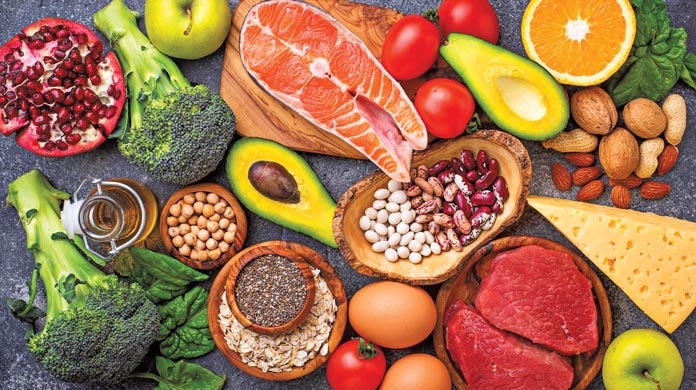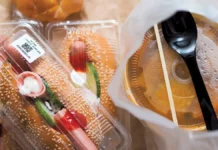
The USDA is updating organic regulations to strengthen oversight and enforcement throughout the organic supply chain. Proposed amendments to organic regulations include increased record keeping, standardizing inspection requirements, and reducing the types of businesses exempt from organic certification.
During the Specialty Food Association’s (SFA) September regulatory conference call, Jeni Lamb Rogers, partner at PSL Law Group and SFA’s regulatory attorney, discussed the four main categories of companies that would be impacted by the proposed regulations for the organic supply chain and what the SFA plans to say in its comments to the USDA, due October 5. They include:
1. Non-certified makers who use less than 70 percent organic ingredients in products
“Under the proposed rule, companies that use organic ingredients will be subject to inspection by the USDA AMS. However, the proposed rule doesn’t clarify how or when these inspections will take place,” said Rogers.
In addition, makers will have to keep records for three years after their creation to prove that the organic ingredients were organically produced and handled and verify the quantities produced or sold from such agricultural products, she said.
Because it may be difficult for a maker to access the information needed for these records, the SFA is requesting more clarity on what documentation would be sufficient to prove the product was organically produced and handled, as well as suggesting that the rule require makers only to keep on hand the organic certificate for actual products brought into the facility and possibly for the broker, distributor, or importer that will handle the item next.
2. Organic certified makers
For these operations, there are two new requirements during the annual onsite certification audit. Certified operations must now verify that the quantity of organic product sold doesn’t exceed the amount that is produced, as well as trace the arrival of the organic ingredient from the production or purchase through time of sale within their operation, according to Rogers. Many companies already do this, so the SFA suggests that the rule add clarifying language that incorporates these efforts.
One of the more challenging new requirements proposed is for companies to maintain an audit trail sufficient to determine the source, transfer of ownership, and transportation of any agricultural product labeled ‘‘100 percent organic,’’ the organic ingredients of any agricultural product labeled as ‘‘organic’’ or ‘‘made with organic (specified ingredients)’’ or “the organic ingredients of any agricultural product containing less than 70 percent organic ingredients identified as organic in an ingredients statement,” said Rogers. The SFA believes this would be incredibly difficult for makers, and instead suggests that they be responsible for ensuring the organic certification one step before and one step forward. For example, from the importer/broker/distributor/supplier they purchased the item from, and then for the broker/importer/distributor that carried it away from the facility.
Another challenging requirement is developing an organic fraud prevention plan specific and appropriate to an individual operation. “It shifts the responsibility and burden onto an individual certified operation to prevent fraud when they are really only responsible for a small piece of a long and complex organic supply chain. And it asks for more questions than it answers,” said Rogers. For example, what data should an operation use to assess the relative risk of fraud for a given organic product?
The SFA is proposing that this requirement be removed for all organic certified operations. The third-party certifiers who have experience with auditing and certifying multiple entities in the supply chain are better placed to connect the dots and prevent fraud.
3. Brokers that handle certified organic products
Regardless of whether a product is fully packaged or not, the new rule proposes that all brokers who arrange for the sale of certified organic products be certified handling operations. However, the SFA believes this is practically unworkable, as many brokers don’t even physically touch the product in any way. In addition, this would increase costs for brokers, which could decide to no longer broker organic products, or decide to pass back costs to the organic producers and makers. Rogers asked, “At what point does the advantage of carrying products which command the organic premium become threatened by unclear compliance responsibilities and ultimately an increased the cost of compliance?”
4. Exporters/Importers of organic products
The new rule proposes two new categories of business that must become certified.
The new category of organic exporters are defined as the entity that arranges for import into the U.S. or is the final owner or exporter of product to the U.S. in a foreign country. In addition to being certified as organic handlers, these exporters would also have the responsibility of requesting the National Organic Program Import Certificate from their organic certifier for the product, which would include the quantity and type of product in the shipment and be issued by the certifier within 30 days of the request, said Rogers.
The second new category, on the U.S. side, is the Organic Importer of Record, who must also be certified as an organic handler, and has the responsibility of ensuring the shipment is accompanied by the NOP import certificate. The importer is also responsible for verifying that the shipment contains only the type and quantity outlined in the NOP import certificate, as well as that the shipment hasn’t had contact with prohibited substances or ironizing radiation since export, according to Rogers.
In response to these new categories, the SFA is inclined to support the idea of an NOP Import Certificate, but believes this presents practical issues for organizations that do not take physical possession of products.
Compliance Timeline
All entities will be expected to comply within 10 months of the effective date of the final rule, or one year after the publication of the final rule. However, it is still unknown when the final rule will be published.
“It will be very difficult for organizations to prepare for these new regulations before the final rule is published, and even then, they will only have one year for all operations to comply, even those that have never been subject to organic certification before,” said Rogers.
The SFA has discussed proposing that all businesses, regardless of size, should have two years to comply with this new rule, with small businesses (those that make less than $10 million in sales annually) having three years to comply. “This extension will make it fairer and hopefully result in a more effective compliance rate and work towards the goal of reducing fraud,” said Rogers.






















